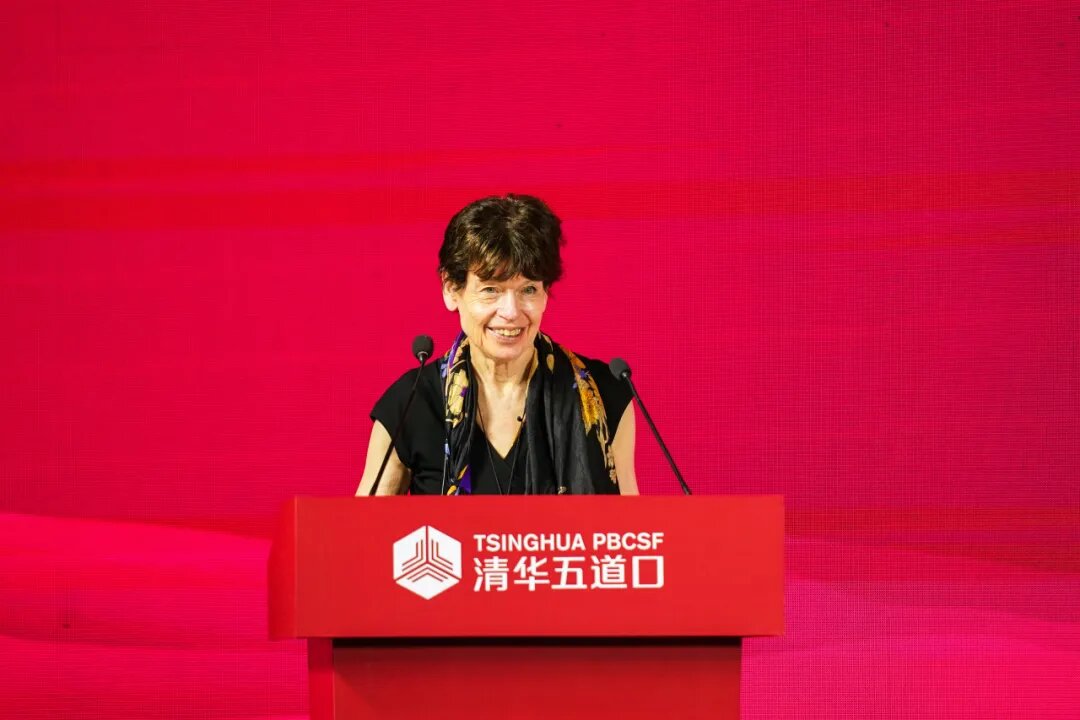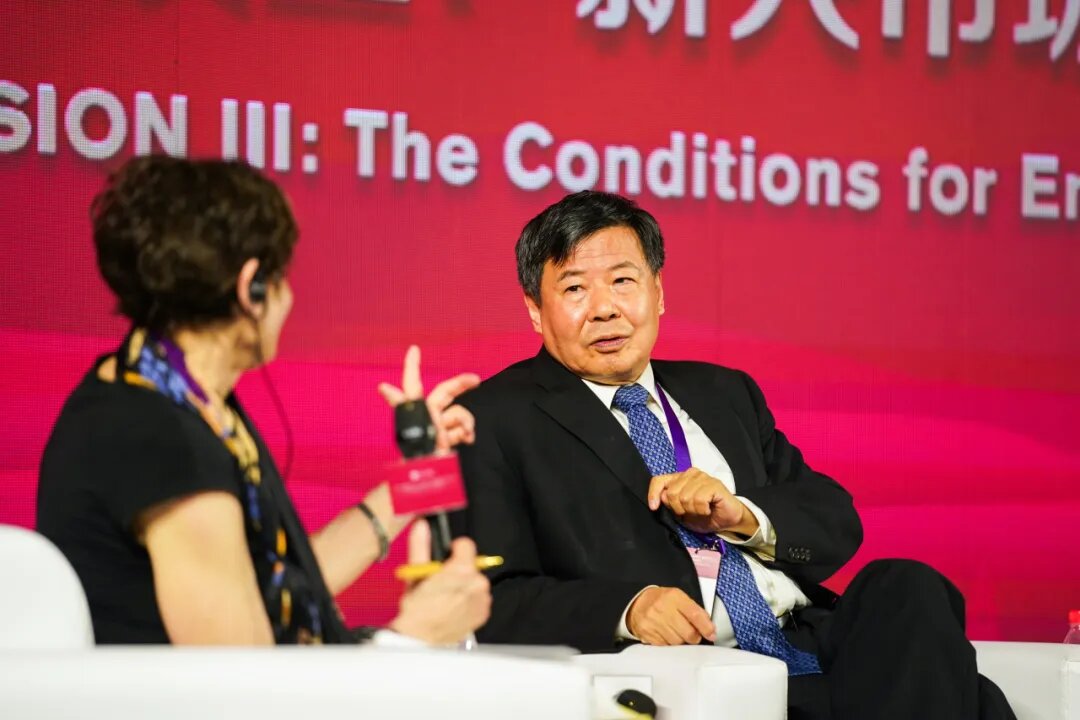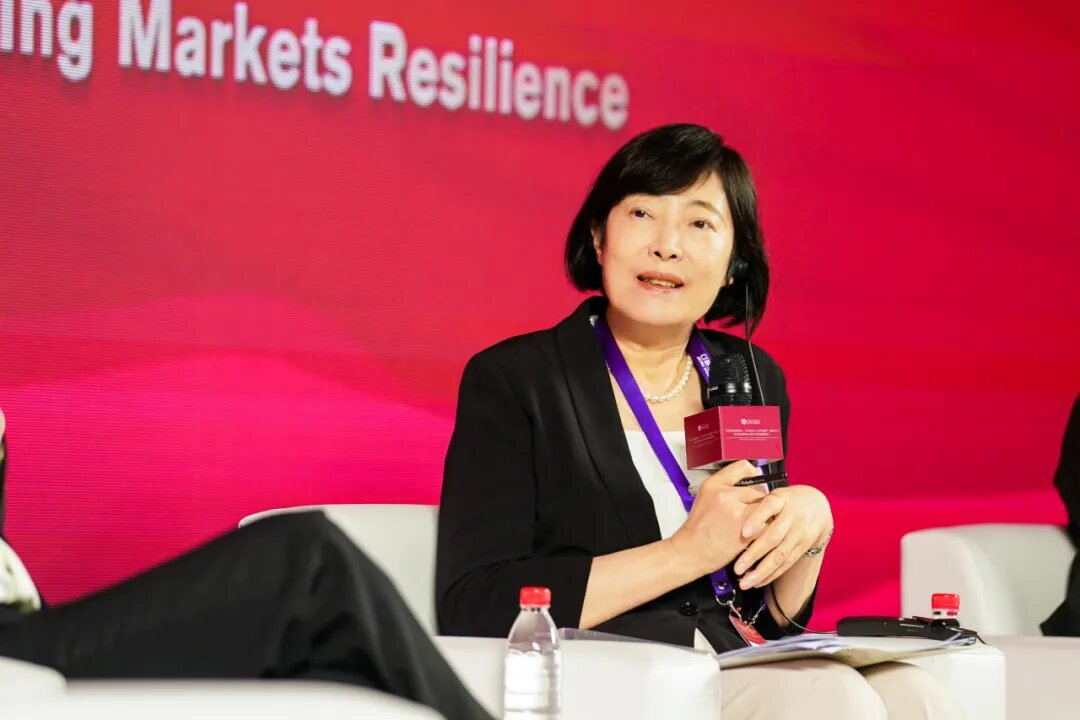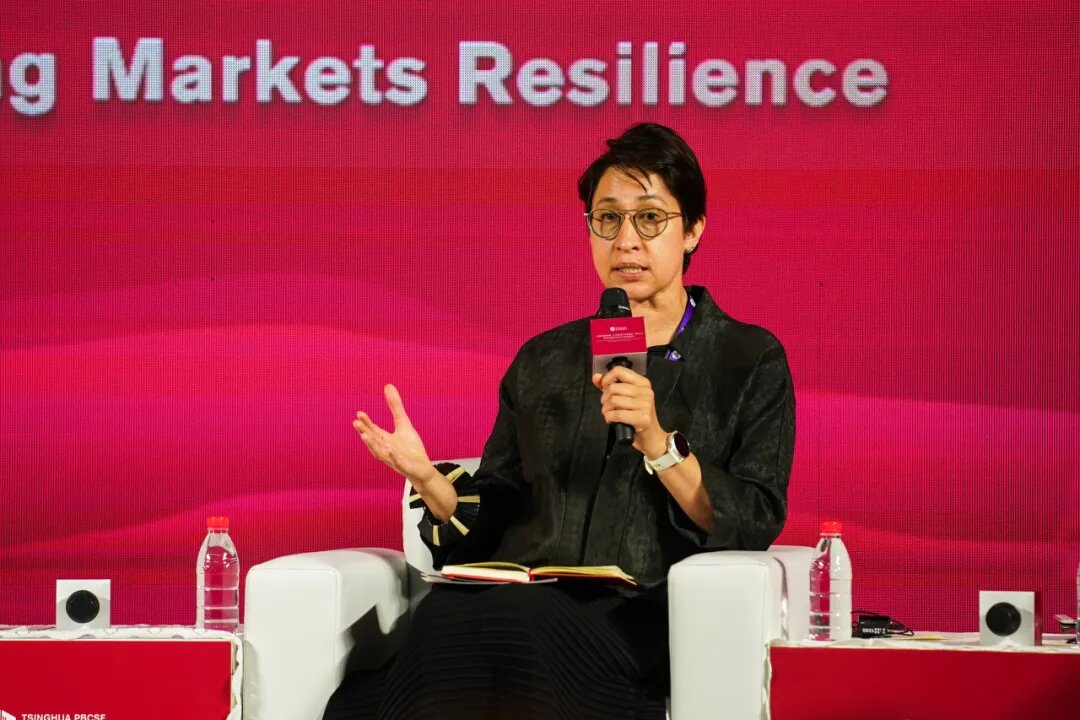On May 27-28, the “80 Years after Bretton Woods: Building an International Monetary and Financial System for All & 2024 Tsinghua PBCSF Global Finance Forum” made its grand open in Hangzhou with the Session III: The Conditions for Emerging Markets Resilience successfully held.

The picture shows Henry Sender, the moderator of the roundtable discussion
In the round table discussion, experts from different fields engaged in an in-depth discussion on the fragmentation of the global economy and its impact on emerging markets. Henny Sender, Senior Advisor, BlackRock served as the Moderator and Zhu Guangyao, Former Vice Minister, Ministry of Finance, Hu Xiaolian, Vice Chairwoman, China Center for International Economic Exchanges; Former President, the Export-Import Bank of China, Bert Hofman, Adjunct Professor, East Asian Institute at National University of Singapore and Elina Ribakova, Senior Fellow, Peterson Institute for International Economics joined the discussion.

The picture shows Guangyao Zhu sharing his views
Zhu Guangyao said that the current global development is showing its imbalance. To promote global economic development, the emerging developing countries need to persistently improve structural reforms, achieve sustained economic growth, address ongoing challenges, and enhance developmental resilience. During the morning sessions, some experts noted that the US economy has experienced a strong nominal economic growth rate of 30% over the past four years. However, it's important to recognize the costs underlines with it: the US domestic deficit and the spillover effect of US monetary policy. First, US has implemented massive measures to stimulate advanced manufacture - the largest industrial subsidies ever recorded in the US history, where, by the way, US is no position to criticize other nations in regard to the issue. These measures have significantly increased the US debt balance, to the extent where its annual interest payments surpassed its military expenditures. Second, the prolonged high interest rates in the US have substantial negative effect both domestically and globally. The existing macroeconomic adjustment mechanisms by G20 is showing its ineffectiveness, which is a warning that we need to revert to multilateralism principles and enhance international macroeconomic policy coordination. In light of these challenges, strengthening regional economic cooperation and policy coordination becomes even more crucial. The 10+3 financial and economic cooperation mechanism is particularly significant in this context. In 2000, the Finance Ministers of the 10+3 countries signed the Chiang Mai Agreement. The Finance Ministers and Central Bank Governors reached consensus recently to establish a rapid disbursement mechanism under this agreement framework. In 2016, the ASEAN Plus Three (10+3) Macroeconomic Research Office (AMRO) was recognized as an international organization. With the establishment of a rapid disbursement mechanism, a fully functional East Asian financial cooperation mechanism is showing its form.

The picture shows Xiaolian Hu sharing her views
In her speech, HU Xiaolian pointed out three dimensions that the stability of the financial system encompasses: the resilience of financial institutions, the resilience of financial markets, and the resilience of financial infrastructure. To increase resilience in these areas, further international collaboration is called for and the global financial system needs to be improved. In some developing countries, the increasing debt is weakening their financial resilience. One of the important reasons is the dominant position of the US dollar in the international monetary system. It is a critical challenge for emerging market countries to balance development and risk prevention. China has always regarded development as an important issue, while it is also the fundamental issue in solving other problems. Developing countries need to maintain a reasonable growth rate while managing risks during development. HU emphasized that, to help developing countries cope with the increasing debt burden caused by the high US interest rates, China, along with international financial institutions, is strengthening collaboration and engaging in easing the debt burdens of these countries by extending their debt maturities in an orderly manner.

The picture shows Hofman sharing his views、
Hofman emphasized the multifaceted nature of financial resilience in emerging markets, highlighting that it encompasses not only foreign reserves but also a mix of policy measures and structural reforms. He noted that while external factors like U.S. interest rate hikes could have previously triggered significant impacts on emerging markets, they have since become more resilient. Hofman highlighted the importance of a diversified approach to policy, including transparent monetary policies and regional cooperation in currency swaps. He also touched on the potential role of central bank digital currencies (CBDCs) in enhancing global financial stability, particularly in easing international transactions. He underscored the need for clear rules in international financial systems, particularly in the context of economic warfare, and expressed optimism about the evolving role of emerging economies in the global financial landscape.

The picture shows Elina Ribakova sharing her views
Elina Ribakova argued that for developing countries, China serves as an exemplary model in terms of financial stability, capital inflows, and reserve management. Numerous nations are looking to China for guidance in these areas. Historically, due to abundant liquidity, many countries opted to secure low interest rates through long-term settlements. This choice was influenced more by the dominance of the US dollar than by the international system itself. However, developing countries desire some level of volatility. Future solutions may include digital currencies or the Chinese yuan. Regarding sources of growth for emerging market countries, Bangladesh provides a compelling example. Bangladesh has successfully taken over China's role in the supply chain, particularly in the textile industry, and is developing at a rapid pace. As long as the supply chain remains effective, all countries stand to benefit. Although some sanctions have introduced changes, these changes have already taken place, and many countries can still secure their position in the global supply chain. If more countries could export finished products to China, similarly to how they export to the United States, they could experience rapid development. For instance, the trade between China and Africa predominantly involves natural resources, but other countries can explore different avenues for trade.